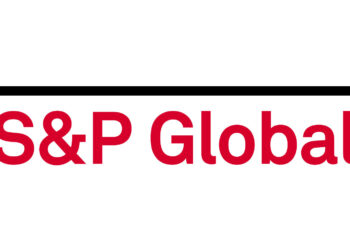Greenpeace USA, an environmental nonprofit organization, has released a new report asserting that major Wall Street financial institutions should be held accountable for financing the “emissions-heavy” Bitcoin mining industry.
The report, titled “Bankrolling Bitcoin Pollution: How Big Finance Supports a New Climate Threat,” highlighted how Wall Street and the banking sector fuel ecological risks by providing economic incentives for Bitcoin mining.
“Bitcoin mining has evolved into a substantial commercial enterprise, requiring significant capital to build facilities and acquire computing equipment,”
“Banks and asset managers are eager to support this industry for financial returns, but this support comes with considerable environmental repercussions.”
The report spotlighted Riot Platforms’ facility in the U.S., which it claims produced the highest carbon emissions among mining facilities in 2022. Using data from the Cambridge Bitcoin Electricity Consumption Index (CBECI), Greenpeace claimed that the Riot facility alone emitted 526,000 metric tons of CO2, an amount equivalent to the yearly emissions from 100,000 U.S. homes. It noted that the key financiers of this facility include Vanguard, BlackRock, Morgan Stanley, and State Street.
Moreover, the report identified Trinity Capital, Stone Ridge Holdings, BlackRock, Vanguard, and MassMutual as the main financiers of Bitcoin mining operations. Together, these institutions were responsible for over 1.7 million metric tons of carbon dioxide (CO2) emissions in 2022, which, according to the report, is equivalent to the annual emissions from more than 335,000 American homes.
Greenpeace criticized traditional finance companies for investing in carbon-intensive Bitcoin mining and called for accountability from banks and asset managers like BlackRock. They urge these firms to disclose the climate risks associated with their investments and report the emissions linked to their underwriting services for Bitcoin mining.
“Financial institutions have a responsibility to disclose risks to their shareholders and clients,” the report noted. “Currently, they lack critical information on the climate risks posed by Bitcoin.”
Notably, Greenpeace had earlier criticized BlackRock for its inconsistency in its commitment to being a leader in sustainable investment. It claimed that though the asset manager is a signatory to the Net Zero Asset Managers initiative, which commits to supporting net zero emissions by 2050, it ranked third among the 540 financial institutions analyzed in carbon emissions from its Bitcoin mining investments.
If you want to read more news articles like this, visit DeFi Planet and follow us on Twitter, LinkedIn, Facebook, Instagram, and CoinMarketCap Community.
“Take control of your crypto portfolio with MARKETS PRO, DeFi Planet’s suite of analytics tools.”





















